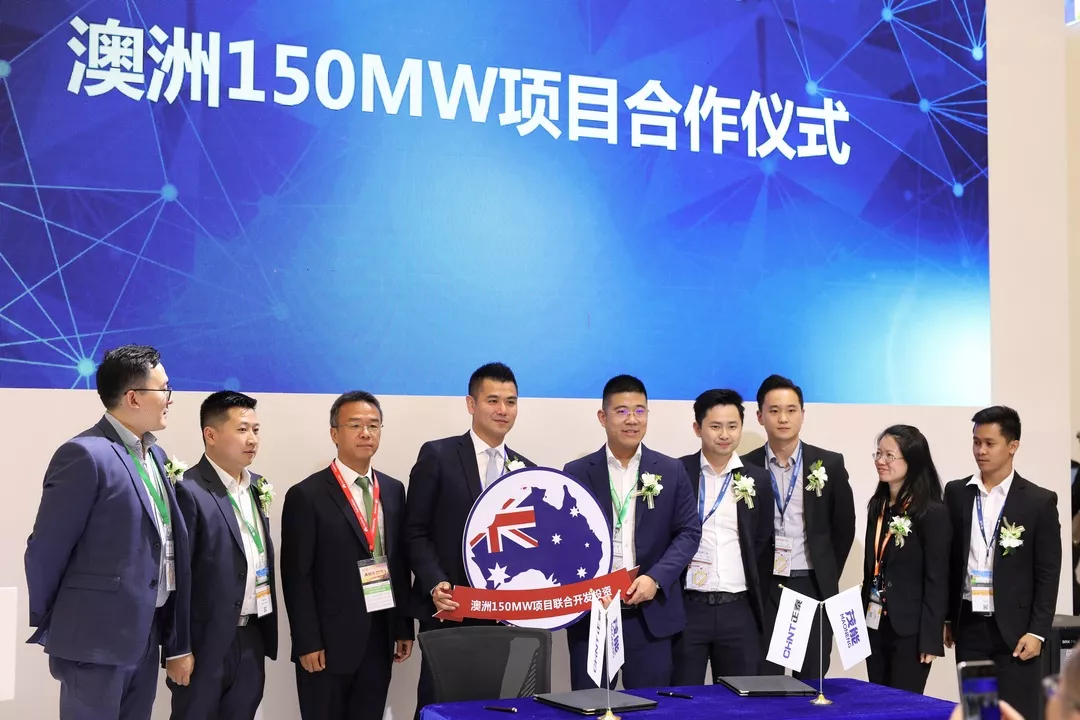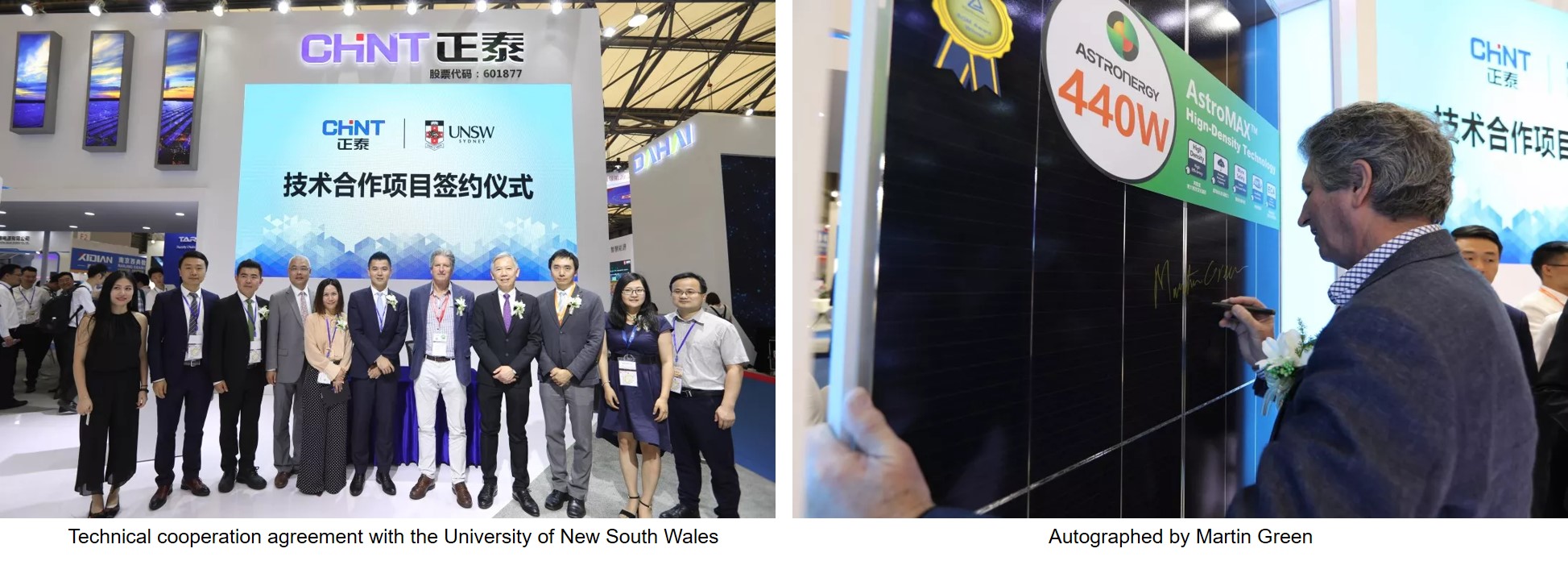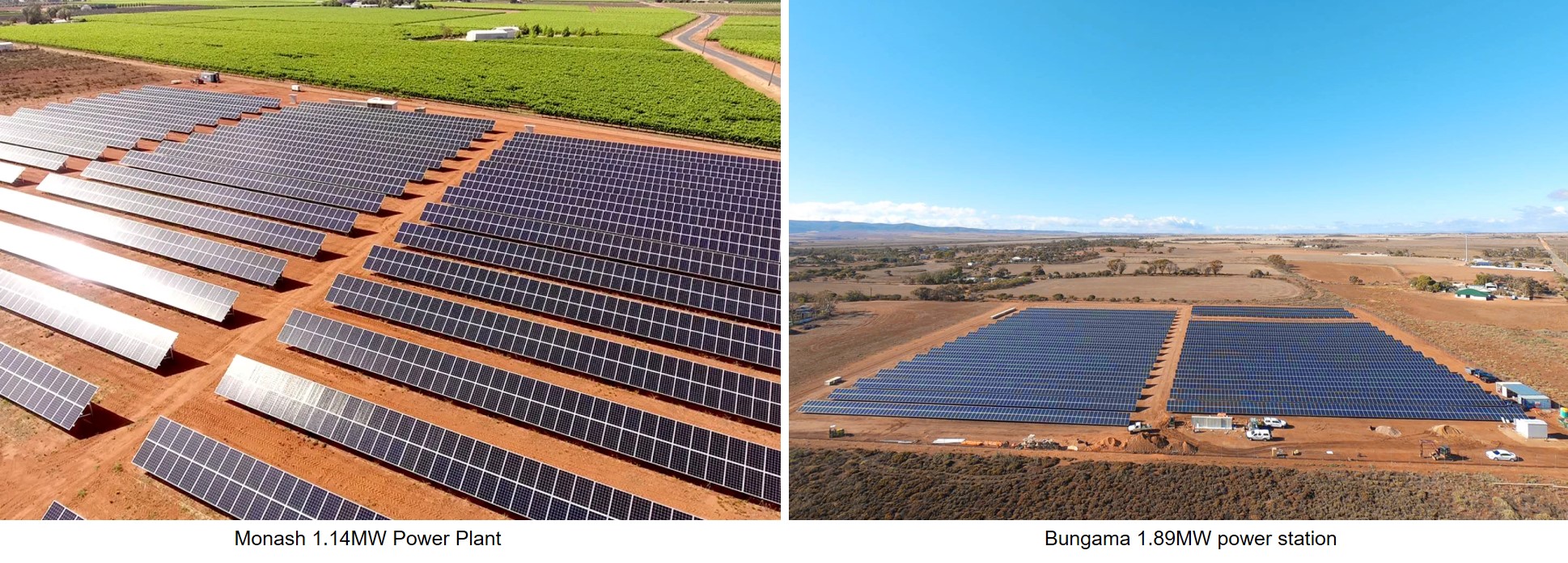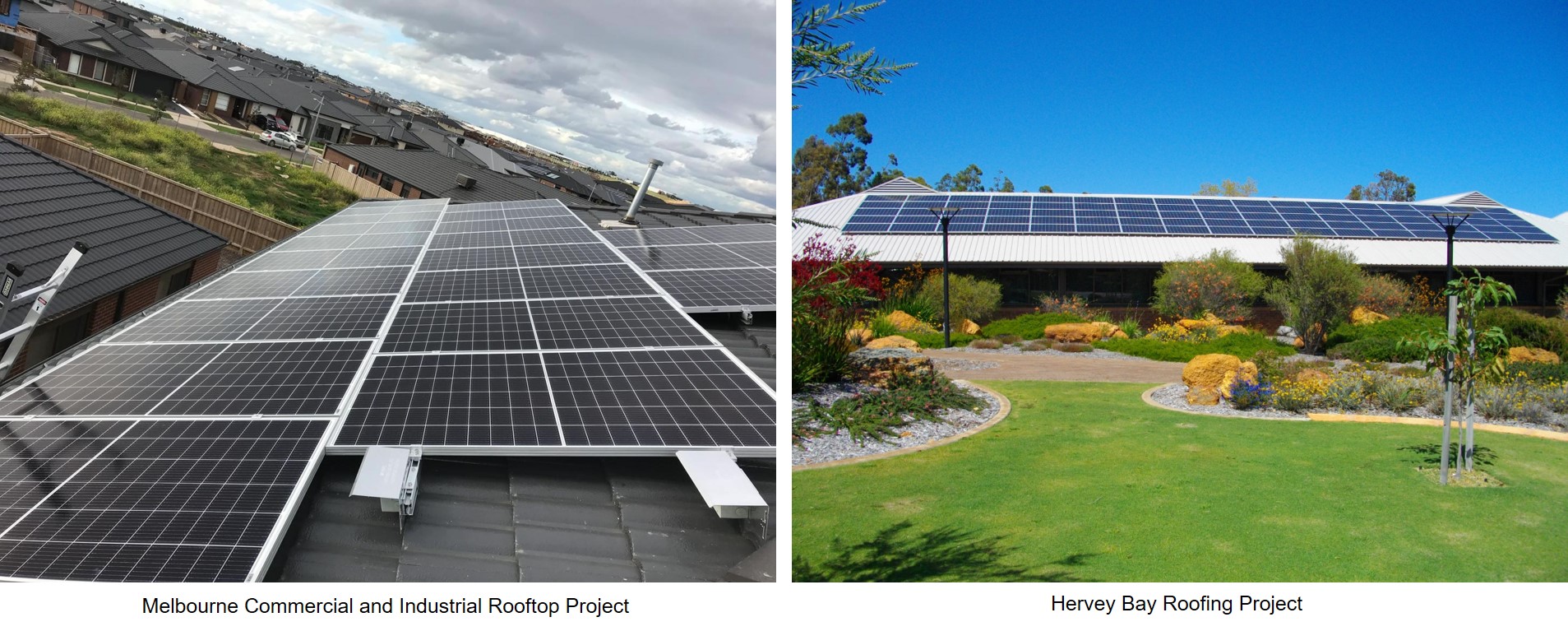Australia is one of the countries with better solar energy resources in the world. With an average of around 2000 hours of sunshine per year and abundant inland sunshine, Australia has rich potential for solar energy development. The clean air and high light transmittance also reduce the cleaning cost. Australia has become a hotspot for the PV industry due to the demand for electricity and the government's promotion. Quickly grasping the opportunity and entering the market has become the key.
Astronergy started exporting PV modules to Australia early in 2013, and set up an office in Adelaide in 2018 to explore the Australian downstream PV project market. In April 2018, Astronergy quickly entered the Australian market by signing a 65MW power plant project agreement with a local developer, and completed the acquisition of a 1MW project in November. Within just two years, Astronergy has leveraged its rich experience in project development, construction, operation and management, as well as friendly collaboration with local partners, to rapidly increase the company's visibility and influence. At present, the company has invested in seven photovoltaic power plants in Australia totaling 35MW, with another 30MW under development, 189MW of EPC joint ventures, over 500MW of module sales, and over 300MW of reserve projects.

Cooperation signing with Maoneng Group
In June 2019, Astronergy and Maoneng Group, a local Australian company with a professional management team and extensive experience in project development, financing and operation and maintenance, announced their partnership and will work together to develop 150MW of photovoltaic power plants in Australia.

During the same period, Astronergy signed a technical cooperation agreement with the University of New South Wales (UNSW), the world's top university, for in-depth cooperation on the future development direction and technical route of high-efficiency battery modules. At the same time, Professor Martin Green, the world's leading representative and authoritative person in the field of solar cells and universally recognized as the "Father of Photovoltaics", left his signature on Astronergy's modules.

Astronergy is steadily advancing the development and construction of PV projects in Australia.In November 2018, the first project, Monash 1.14MW plant, was completed; in June 2019, the Bungama 1.89MW project was completed and connected to the grid. Since this year, Kadina 5.86MW, Bungama 5.86MW and Caroona 1.98MW projects have also been connected to the grid. So far, Astronergy has grid-connected nearly 17MW of its PV projects in Australia, with 18MW expected to be connected early next year and the entire 65MW project expected to be connected by the end of next year to mid-2022.
Astronergy's four core businesses are power plant operations, EPC, module manufacturing and household distribution, and overseas EPC is an important way for it to go global. Astronergy's reputation and customer satisfaction in the Australian market is based on the excellent quality of its PV modules, long term traceability, long term field operational stability and its relatively mature experience in global EPC projects.

Astronergy's high power, high efficiency, high compatibility and high quality modules are also widely used in commercial, industrial and residential rooftop projects in Australia.

The future is bright for Astronergy. Today, Astronergy has invested in overseas PV power plants in the United States, Japan, Spain, Korea, India, Thailand, Bulgaria, Romania, South Africa, the Philippines and other countries, and has built nearly 100 PV power plants in countries along the "Belt and Road". In the future, Astronergy will continue to increase its investment in research and technology, improve its service capabilities, bring more efficient and high-quality products and solutions to the Australian market, support the development of renewable energy in Australia, and further expand Chint New Energy's global PV power plant footprint, working hand in hand to promote global green and sustainable development.


